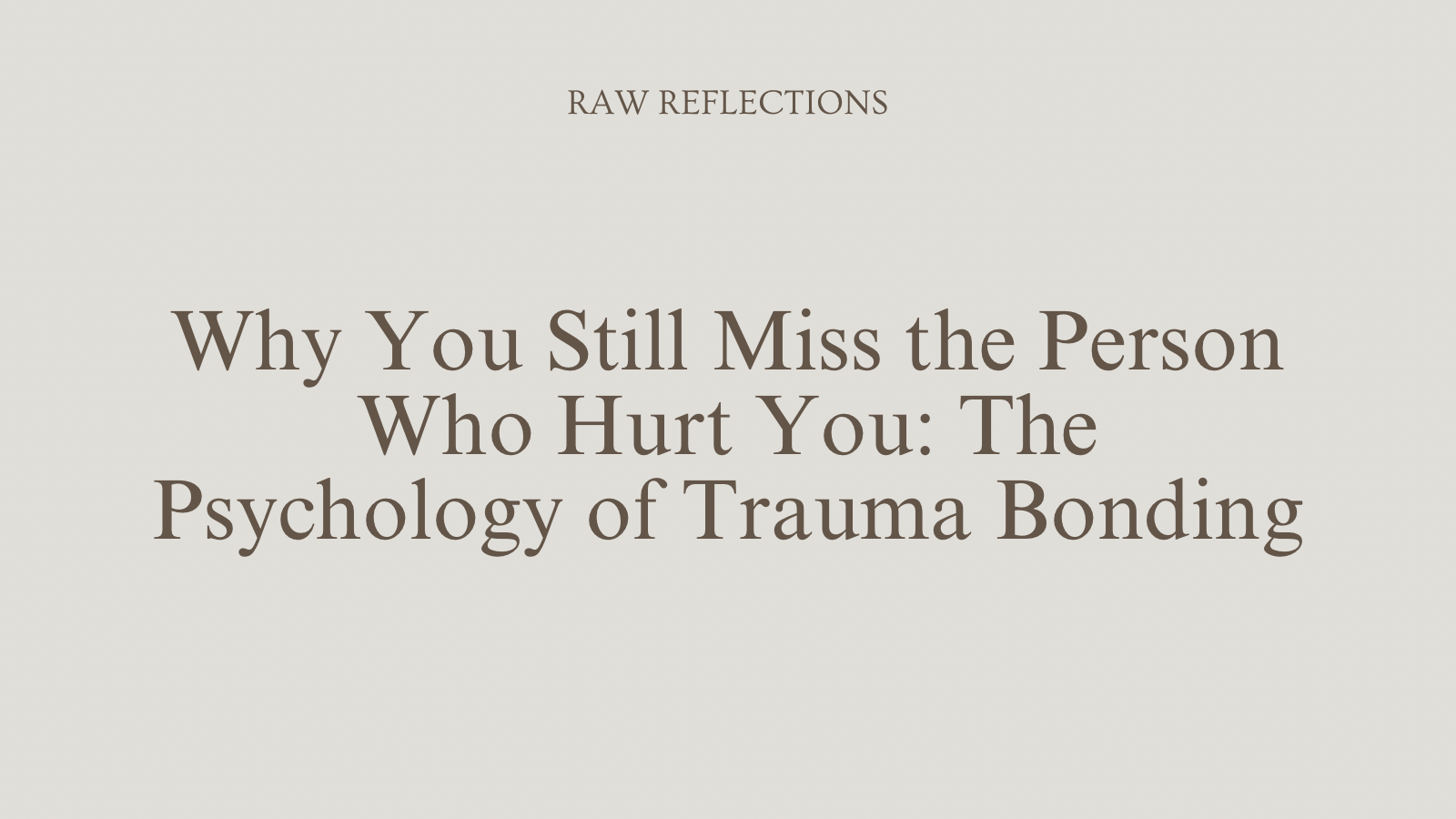Welcome to Raw Reflections
This is where the commentary gets sharp, the writing gets bold, and nothing is off-limits. Raw Reflections is more than a blog—it’s an ongoing conversation about law, identity, culture, power, and the personal truths we’re told to keep quiet.
Here, I unpack courtroom drama, critique pop culture, analyze the systems meant to protect us (but often don’t), and write through the chaos of being alive in a world that demands silence from the loudest hearts. From legal education to emotional storytelling, every post is crafted with clarity, depth, and purpose.
If you’re here for truth, for context, for the unfiltered version of what really matters—then you’re in the right place.
“You’re So Mature for Your Age”: How Infantilization & Idealization Warp Up
“You’re so mature for your age.”
It sounds like a compliment, but it often masks a deeper wound. When adults praise children for being mature, they’re often praising trauma responses—silence, emotional suppression, self-sacrifice. In this post, I break down how infantilization and idealization can warp our sense of self, and what it means to reclaim your identity on your own terms.
Why You Still Miss the Person Who Hurt You: The Psychology of Trauma Bonding
Why do we stay attached to people who hurt us? This blog breaks down the psychology of trauma bonding—what it is, how it forms, and why it’s so hard to leave even when you’re being mistreated. If you’ve ever felt stuck, confused, or addicted to a toxic cycle, this one’s for you.
Hyper-Independence as a Trauma Response: Why I Struggle to Let Anyone Help Me
Hyper-independence isn’t strength—it’s survival. It’s the trauma-born belief that needing anyone makes you weak, so you do everything yourself until it breaks you. In this post, I unpack what hyper-independence really is, where it comes from, and what it’s been quietly stealing from me.
You Don’t Have to Be Healed to Be Powerful
We glorify healing, but we don’t talk about what it means to be powerful in the middle of it. This piece is for the ones still unraveling, still figuring it out, still showing up anyway. You don’t need to be healed to be heard. You don’t have to be whole to matter. There is strength in your survival right now—even in the parts that still hurt.
Forgiveness Isn’t a Requirement. Especially Not for Survivors
Forgiveness is not proof of healing—it’s a choice, and not one survivors owe to anyone. Trauma doesn’t disappear just because society is more comfortable when victims are quiet, forgiving, and palatable. Sometimes survivors are angry. Sometimes they don’t forgive. And that’s okay. Healing looks different for everyone. This piece is for the ones who are still carrying it, and still choosing themselves.
The Silent Epidemic: Why We Can’t Ignore Male Suicide Any Longer
I used to think male pain wasn’t my problem. But the truth is, men are dying in silence—and we’ve all been complicit in ignoring it. This is my rawest reflection yet: an apology, an awakening, and a plea for change.
You’re Not Serious People: The Tragedy of Succession and The Poetry of Power
Succession isn’t just about rich people—it’s about emotionally stunted heirs trying to inherit power they were never emotionally equipped to hold. It’s a modern Shakespearean tragedy disguised as an HBO drama, where every move is strategic, every relationship transactional, and every child quietly screaming for their father’s love.
The show’s brilliance isn’t in the business battles—it’s in the emotional warfare. These aren’t serious people. They’re broken people. And in the end, that’s what makes Succession so powerful. This blog breaks down its Shakespearean core, its tragic characters, the lessons each one left behind, and why the ending was exactly what it needed to be.
Why Don’t Survivors Report? Because the System Wasn’t Built for Us.
Survivors don’t stay silent because they’re weak. They stay silent because they’ve seen what happens when others speak up. They’ve seen the questions, the gaslighting, the disbelief. The truth is—we don’t need more courage. We need a system that deserves our trust.
Survivors Guilt in the Age of Empowerment
We love stories of survival—but only when they end in strength. Nobody wants to talk about the in-between. The days when you’re still grieving something you ‘should be over,’ still angry about things the world expects you to forgive. Survivor’s guilt is quiet, but it cuts deep. It’s the weight of being alive when others didn’t make it. It’s the pressure to inspire when you’re still hurting. Healing isn’t always beautiful. Sometimes it’s just breathing through the ache and trying again tomorrow.








